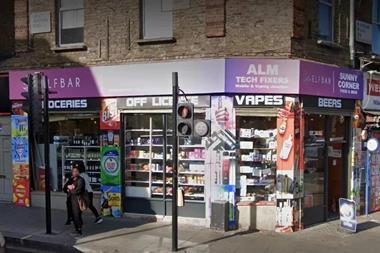General Elections start earlier and earlier these days, and I suspect that the political to and fro on alcohol policy that was prominent in January will continue to feature heavily as we approach polling day. But what are the differences between Conservative and Labour policy on alcohol, and what does this all mean for local shops?
The official party line from both is one of opposition to minimum pricing, and they form an unlikely united front in opposition to the Liberal Democrats, health groups and the Health Select Committee, all of whom are in favour of the measure.
Local shops would welcome a ban on below-cost selling to stop the supermarket alcohol pricing that independents find it so tough to compete with, but we have to be consistent in pressing for evidence-based regulation, and that evidence is currently shaky at best.
The Conservatives’ alternative to minimum pricing is a more punitive tax regime targeted at certain products. They also want to see new conditions applied to alcohol licences, but they have to be careful that by talking tough to impress one audience, they don’t turn off the very businesses they have spent so much time wooing.
The recent debate has given politicians the chance to churn out the lazy stereotypes that are an easier alternative to addressing the heart of the issue, such as when Labour’s Alan Johnson talked about “irresponsible corner shops”.
It’s a fact that all types of licensed premises can make mistakes and sell to those underage. It would be much more honest if politicians and all parts of the industry accepted this and focused on trying to reduce underage purchases, instead of pointing the finger at the corner shop.
The official party line from both is one of opposition to minimum pricing, and they form an unlikely united front in opposition to the Liberal Democrats, health groups and the Health Select Committee, all of whom are in favour of the measure.
Local shops would welcome a ban on below-cost selling to stop the supermarket alcohol pricing that independents find it so tough to compete with, but we have to be consistent in pressing for evidence-based regulation, and that evidence is currently shaky at best.
The Conservatives’ alternative to minimum pricing is a more punitive tax regime targeted at certain products. They also want to see new conditions applied to alcohol licences, but they have to be careful that by talking tough to impress one audience, they don’t turn off the very businesses they have spent so much time wooing.
The recent debate has given politicians the chance to churn out the lazy stereotypes that are an easier alternative to addressing the heart of the issue, such as when Labour’s Alan Johnson talked about “irresponsible corner shops”.
It’s a fact that all types of licensed premises can make mistakes and sell to those underage. It would be much more honest if politicians and all parts of the industry accepted this and focused on trying to reduce underage purchases, instead of pointing the finger at the corner shop.

















No comments yet